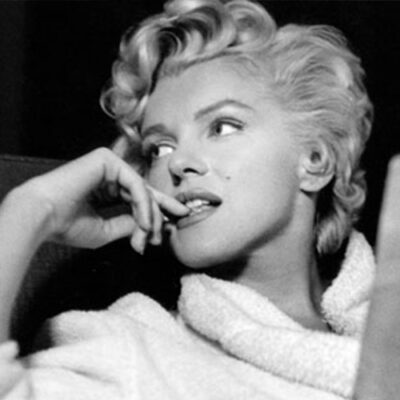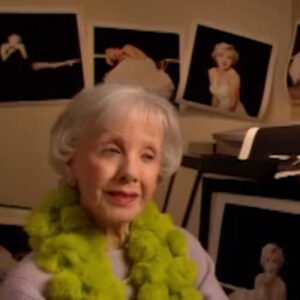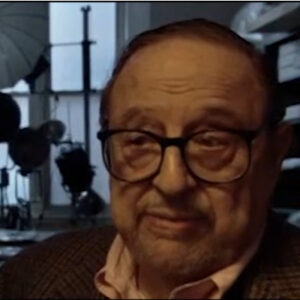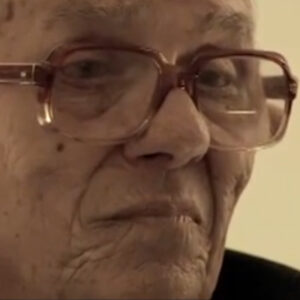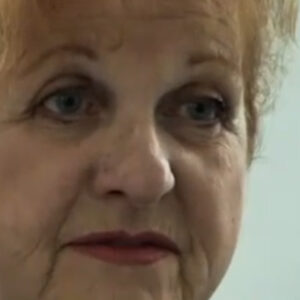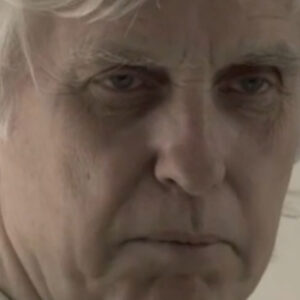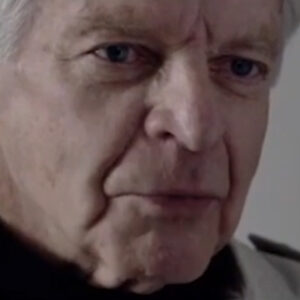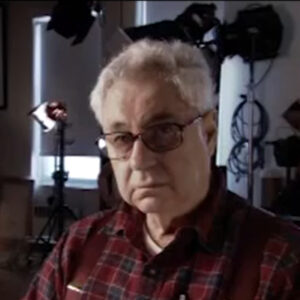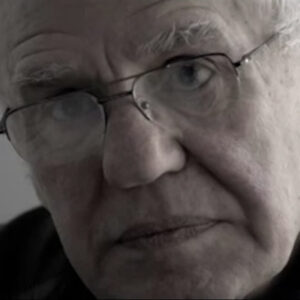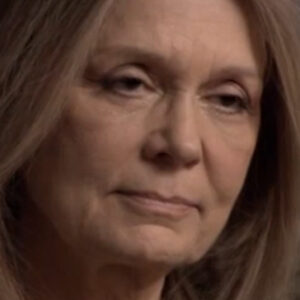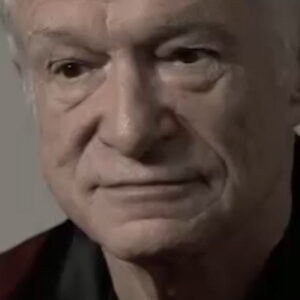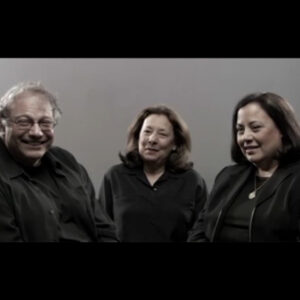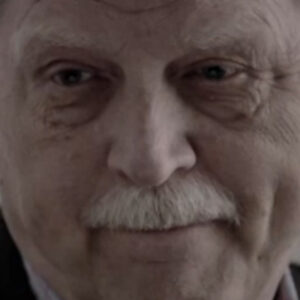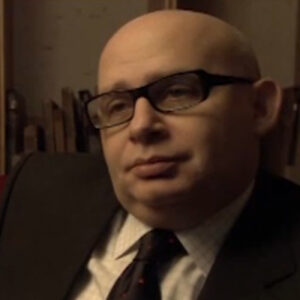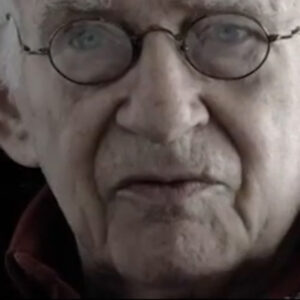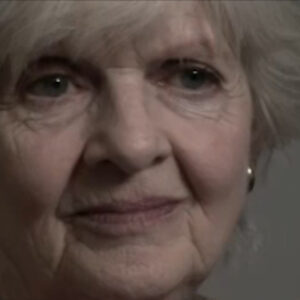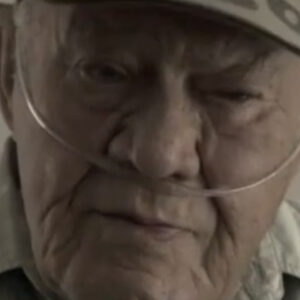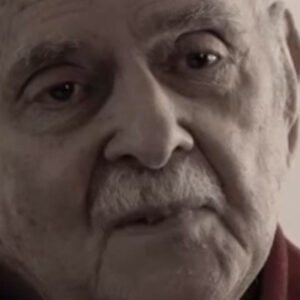Eve Arnold: You wouldn’t have a nail file would you?
Interviewer: I don’t have one, no, I don’t. Can you. Can you.
Eve Arnold: My nails look terribly dirty.
Interviewer: Your nails look wonderful. And we’re really only shooting your face. So your nails. You don’t need to worry about your hands right yet. But your nails will be fine. When we look at the book.
Eve Arnold: Well, maybe they again.
Interviewer: Found me to bring it when we do the book. OK, we get you. So can you remember back to that Esquire doing the Esquire shoot with Marlena Dietrich and Marilyn Monroe seeing it. And what happened with Maryland when you first met? Do you remember the first time you actually met Marilyn.
Eve Arnold: At a party for. DawnNewsom.
Interviewer: And how what what how did you what was your first reaction to her?
Eve Arnold: I can remember.
Interviewer: You were one of the you and Ingomar asked where the two women who actually shot with her at all the other photographers were men. And your relationship with her was very long. It almost you shot with her for almost that whole decade of 1950 to 1960, up to almost the time that she died. So you had a very long relationship with her. Can you tell me a little bit about the interaction between the two of you when you would work together shaking and the situation?
Eve Arnold: I see you did. Maybe I need some coffee. OK.
Interviewer: I’m not going to call her. I’m going to get some OK. I’ll be right back. OK. Matt. I remember you told me that she Marilyn was very much in charge of her own image. She always looked at the content to his control.
Eve Arnold: Never did it never happen. She just simply moved on. She moved you the. And the ad it was that to no. Tactfully. Well. What’s going to happen? I can plan for.
Interviewer: Was she. Was she a different. Something happened different when the camera was around her.
Eve Arnold: When the camera was there and she became Marilyn. When I realized who’s here, her cell continues simple and direct. Man, she’s a figure when she is being filmed. When it was stills, their film.
Interviewer: One of the things that you said in your book is that the still camera, though, was really.
Eve Arnold: Her passion because then she can control what was happening. Do you plan more? Everything she did.
Interviewer: Was she. You are also that she really studied the face and she studied the body and she really sort of studied all of this. That she really decide planning. It was a great deal of transformation that she taught herself.
Eve Arnold: She would, sort of, become a different person. Mentioned the camera.
Interviewer: Was she. Was she happier?
Eve Arnold: She was a human being. And who’s special went to is not on camera. She was she was different.
Interviewer: She said that she had made the comment when you did the last shooting with her with in after The Misfits, with two whity her cameraman, she’d made the comment that it was like the good old days, she’d had a wonderful time, and that that was when there was hope. So was that feeling of sadness in her real life? I always kind of at odds with that image.
Eve Arnold: Yes. See? She knew she was. It’s where she. And choose. To special otherwise. Just on.
Interviewer: What was she like with you? What was your relationship like? Because I think she quite trusted you.
Eve Arnold: Yes. You. Me, because. When we worked together, I gave her her head. She can do anything you will. What do men do is oh of jam. James.
Interviewer: Do you remember the different I mean, you shot her both ways, you shot her in your very your journalistic way. Just following around with a camera, you also shot her in a posed setting. What were the differences when you were in?
Eve Arnold: The issue is different turf. As she said, terrorism, she has now. She’s the well, you know. She is a person that he did she did she elicit from you and from people around her?
Interviewer: Were people exasperated by her? I certainly know they would be on movie sets, but there also was a great, I would assume, a great deal of love toward her and a great deal of that sort of feeling emotion for her. Did you feel that as well?
Eve Arnold: Yes. And she felt different when she was working with Mrs. Bush.
Interviewer: Who was she more secure somehow? Was there more confidence when she was working?
Eve Arnold: Yes. She fell there. This is a different person.
Interviewer: When you came when you came with her to something that was not easily you wrote and also wrote in this book that she always withheld a little bit, that you never also felt that you could quite know her, but also with you, I think she felt a great deal of comfort and trust. So I’d like to hear a little bit about just that caution in her perhaps, or that withholding. She didn’t seem to mind you being around her, photographing her in in in ways that she couldn’t control. Either it was different than when you had a sitting with her. She seemed to trust your. Your. That you would that you would take care of her image.
Eve Arnold: What do you mean?
Interviewer: Well, I think one of the things we learned about her, we read about her is that she was so hurt by people and she was so often misunderstood and so often mistreated that to have people around her that she trusted was rare. And he was certainly one she trusted.
Eve Arnold: She had very few people. She’d been down in Soundwave. She fell. You have to go.
Interviewer: And you, however, somehow managed to bridge that with her. Yes. Why do you think?
Eve Arnold: Because I never tell me what to do. I let her. Find your way along with her. And they were. Great lesson. How many years since her death?
Interviewer: She died in 1962. So it’s 30, 32 years right now. Forty two years. Forty two years.
Eve Arnold: And boy, Jay, she’s gone away.
Interviewer: And she’s met. And she’s maintained.
Eve Arnold: I mean, they never change.
Interviewer: When you took all these photos. I think. Can I hold the tissue and do you need it again? Well, the cable. Because of the noise of the tissue, I think. Yeah. Yeah. I think I would like to do that. Still. Yes. Let me I hold a Kleenex because it’s making a noise and you need it again. Do you mind if I hold it. Tissue the tissue because it’s just making a noise or hold it. If you held it in the other hand, that would be better because its it hits when it hits your suit. It we’re hearing the noise of it. Okay. When you took all these photographs over 40, you took them actually starting in 1950 when you met her at the John Houston party. So that’s over 50 years ago when you took all these photographs. Had you any idea then that they would they themselves have the power and the and the lasting ness that they have? Or could you sense that, that even in the beginning when she was just an unknown, a starlet and you went to Illinois with her, did you sense this? You know, we’ll comment this this real presence that was going to last.
Eve Arnold: No, no, I don’t have to blame. Blah never came. I mean, being a world power, she became.
Interviewer: And and she became so. So immediately you wrote in here about all the ways in which people have propagated her image. And it’s really been quite astonishing.
Eve Arnold: Yes, she became powerful.
Interviewer: Tell a little bit about that. At the end of The Misfits, when you went back to the studio in L.A. and she’d been not happy on that set, she was breaking up with Arthur Miller. She was just miserable. And she wanted to have sort of a cheesecake just sitting. And you did this with her?
Eve Arnold: She won the kibble cheesecake carriage. She wanted to be a person, Ray. She became the person slavey. Presley becoming.
Interviewer: Let me just take the Kleenex. OK, let’s hold it for you. OK, go ahead. She became her own person.
Eve Arnold: Chimney came on, man.
Interviewer: But at the end of the Misfits, do you remember, you set up that little studio. You did it on a Saturday afternoon with her. You tell a story. It’s so great. And she wanted a private little sitting and you setup. And it was kind of a cheesecake sitting, even though she was trying to reject that image.
Eve Arnold: She is herself and she was happy because she was acting and becoming somebody else. Then somebody else was married.
Interviewer: The sexy part of that of her, that’s not the cheat that cheesecake part of her, not the actress part of her in that in all the years that have followed for women and for women’s images and women’s consciousness, still that very sexy, very vulnerable, very sort of duey image has not has never gone away. Does that surprise you in some way that the very sexy part of her image has been so eternal?
Eve Arnold: Yes, it didn’t surprise me. She. Well, we were done. Those big Jews, they were for life for all various magazines around the more Uncle Magnum was the only group permitted to photograph her.
Interviewer: So they are very important. They became very important. Those pictures.
Eve Arnold: And she at the end of the day, I said I was sorry that the you guys in that boat was having an iceberg say, oh, we saw everything. So suddenly I said, we hold in the no scene, Babri, you’re using. And we all had good luck. It was good.
Interviewer: They loved it, right? Yeah, it was, darling. I wanted to ask you about when she would edit the contact sheets. I remember you telling me about this before. Was she. Was she pretty hard on those contact sheets? Was she pretty definitive about what she wanted to be printed and what she wanted to let out?
Eve Arnold: Yes, she was very sure. Is she doing much to please?
Interviewer: Did you ever print after her death, did you print pictures that that she herself had not ones that she had not wanted printed before? Or did you always honor her choices?
Eve Arnold: And you know why?
Interviewer: Well, I know that she was very she was very deliberate about what she wanted you to print and what she wanted on the contact sheets. But the photographer’s eye and the SIDOR Zaya are two different things. So were there things that you saw that you loved that were not ones that she liked that you thought which should be seen?
Eve Arnold: Shooting Ventoux, boy. Where is she dead? I just never gave instructions. She simply did what she felt was right. And she was better off judging, which you weren’t.
Interviewer: So she was a good editor of her pictures.
Eve Arnold: Yes.
Interviewer: Good. You want to take a little break and have a little more coffee?
Eve Arnold: I beg your pardon?
Interviewer: Do you want to take a little have a little coffee and have a little break and then get some photographs?
Eve Arnold: Zero.
Interviewer: Excellent. Let me give you a little more. Not just watching her, but the act of photographing her for you, because it’s a huge interaction. I don’t need to tell you that.
Eve Arnold: Yes, I can tell.
Interviewer: OK. So when for you like the very first when when the very first time you photographed her, what were you. How did you react to all of it? Not just how she reacted to it. She was quite I mean, here you were with probably the most famous woman in the world even then by the end of that decade. She was sort of you sort of watched her grow into this most famous woman in the world in that decade of shooting with her from just the young starlet to TV star. And you are you with her? How decide not asking her for anything but your own feelings about working with her.
Eve Arnold: Tim Price.
Interviewer: When you put this book together and you went to the opening of the photo show just whenever very recently, were you surprised at how everybody how hugely popular it all still is and all the reaction to it?
Eve Arnold: Yes, sir. As a man, I’m some more. Some word. They a link to Nick Clinton’s shoes a little, he really loved him. Your price. G. She did change and she was so better. He was an actor. Thanks and boy.
Interviewer: And yet he really had a very hard time with her, didn’t he?
Eve Arnold: Yes. He had terrible didn’t like the engine get on together. There wasn’t a bad time, you say.
Interviewer: And she was finishing that. She did excel over him, I think. And you know, everything her instinct was you wrote something very good about her, about wanting to learn so much. But that book, Learning and Intelligence, are two entirely different things. And she didn’t realize perhaps her own intelligence. Do you think that was true? She worried about it being considered just this dumb blonde.
Eve Arnold: He is alive.
Interviewer: And then and then she went on to The Misfits, which was also a very hard time. By then she was. She we look at some pictures.
Eve Arnold: Yes.
Interviewer: OK. Any time you can just take a look at the book, you just look at them. You remember that one? Of course.
Eve Arnold: They fly. On our way to Chicago, to a city that.
Interviewer: We will return some of the pages and just take a look and then we’ll talk about the individual shots.
Eve Arnold: He’s the only me.
Interviewer: I turn the page.
Eve Arnold: Two jurors.
Interviewer: That Whitey complied with, his name Whitey. That wasn’t Whitey, was it?
Eve Arnold: And here we may well be. Yes, I do, I’m. I met her at a party for John Hewson in New York. And then about six months later, I was mole I’d to be. I live in and beach a northerner asking who’s a poet, came along with a girl on his arm. And he turned to me, looked at me and they said, you know, Matalan, of course. And that was the beginning of our friendship. And the bad. Six more months went by and he banned himself again on the beach. He lived on the beach, too. And he stopped me and said, Why do you think of her? Well, I think very much over ju just a pretty girl and that was all.
Interviewer: Do you remember the story about you reading your book in this book about when you were shooting Marlene Dietrich and she saw those photographs and she liked them very much. No, that’s okay. We don’t have to do it. You wrote in here about you had been doing a story for Esquire with Marlene.
Eve Arnold: Oh, yeah. At some point you looked down, you said a Norman said when he introduced you said he drove for days. So she loved the dog words. They made her really. And so she sure lifted me. And I became Borton in their life because for God, it’s always you were.
Interviewer: Where you were the only woman Ingomar in some photographs with your misfits. But you shot with her for that essential decade of her career. Really? Am I right? From sort of 1950 to 1960. You’re 21, actually.
Eve Arnold: Yes, you are right.
Interviewer: And you were the only woman photographer. All the rest were men, with the exception of that one moment with Enga.
Eve Arnold: Well, she wants to tell.
Interviewer: Me why the relationship between the two of you. Because she did sort of cheesecake sittings with you. And you’re a woman. And she also that was a great part of her of her output with male photographers.
Eve Arnold: Yes. And the to have my face if I fainted on the beach, she was visiting normally again. I simply had my cam. Well, what do you have for me? I don’t usually pay bringing camera with me. I like, give my eyes. We enjoy things in that. Oh, we’d be looking for pictures. And then next time I met her, she asked me if I go in there somewhere in the Middle West and I said yes. One and two o’clock, one morning cheese Saturday morning. Remember, she called me and asked me. You have to be, man. No, let them kill issues. A hundred years into since Lincoln’s speech. So I said I’d go and tell her to look at the bawdy dynamics, make sure they have enough bunny to fly at them. There was a Bijoux. Watermann, what’s the word I’m looking for me. Before.
Interviewer: Too early in the morning, before anything was open.
Eve Arnold: Is reviving was No. One, but also before we had cleared cause.
Interviewer: Oh, right. So you had to go to a bank to get some.
Eve Arnold: No. Three o’clock in the morning it was No. One.
Interviewer: Right.
Eve Arnold: So I did. I knew my boy to stand by. Played card and you can cash a check and then try again. I got in the car. Or was she.
Interviewer: Was she. Likely. Was she prone to phoning you all hours of the night? Or was that just one guy.
Eve Arnold: That was the one.
Interviewer: She clearly trusted you, which is something that I think was hard for her. And you had along you had a long and solid relationship with her. Why do you think it was that she felt so comfortable with you?
Eve Arnold: Because I was comfortable with her. I think that was the reason I felt guilty, because she felt angry at me. And so we just became friends. Had not done that with any then. I just never felt as comfortable then as I had with her.
Interviewer: It shows in the photographs. The photographs are very, very warm and they’re very. You feel the communication between the two of you. What was it like? The actual process of working and shooting with her?
Eve Arnold: It was very good. First of all, that is probably the only person she knew that she was on time with. She’s never identified with anybody, but she was with me. I think it was because he was sure that I wouldn’t be gay.
Interviewer: Absolutely. Absolutely. Will you tell the story of the at the end of the Misfits when you went back to the studio to do that closed shoot?
Eve Arnold: Oh, by the time we did The Misfits. Well, you better try. Comfortable and easy with each other. So I asked her for a day shoot with present day. But she said to have give me a day last week in the Shulie Mysteries and the GLAAD. I think nine that she in the show for the second. Oh people you go ago. She was. I usually never have. It was easy with her. So I said, sure. And yet the mystery.
Interviewer: By the end of the year.
Eve Arnold: I said the other seven. And they were down. So I was there and there has been on A to Z and been easy, pleasant, fun. The one spoke to us. We were there. I said, What do you mean you were there? And let’s call. Johnny said, we haven’t cut holes in those same day. We looked to we had no hope. The white paper. And we want you to be dead. They said, what was it like? And they said, very crazy. We did what you wanted to do and she would you want to do it? It came that way. Nobody wants to be.
Interviewer: Was it totally different to do that kind of a shooting with her where she actually was in a sort of closed environment as opposed to when you were just around her on the set of The Misfits or in Illinois with her when you just could shoot like like you should shoot at a journalistic photographer with your camera?
Eve Arnold: Why was a good. How were you? I don’t know what it was like. It was pleasant. And she took though. She was always in charge. She only knew what to learn, how to how to get in. So she like. I’m trying to think in the words for. And this is the closest I get Miss Shoes and George.
Interviewer: Did she would you watch her when she would look at your contact sheets? She did look at them, didn’t she? And she.
Eve Arnold: Yes, I bought the color in my handbag, tit for tat. I am so alone that she loved me while we were working in her apartment. That’s the second time I went there myself. She looked through the camera and she said, just what I want to when I tell you what.
Interviewer: She is quite happy with the photographic image, wasn’t she? She liked seeing herself in pictures and she liked being in front of a camera.
Eve Arnold: Well, a camera made her and she knows it.
Interviewer: And it was different than a movie camera. Don’t you think with the still photographer did with her still photo of her?
Eve Arnold: Is it tougher and takes up your life? Whereas I can make the movie camera and feels mechanical. And she loved this business. Tell me why you became a man.
Interviewer: And she did pretty well with it.
Eve Arnold: And the first time I was ever has the phone rang and there was a publicist was in charge of her family. I think twice. And she just loved to me. She said, Eve’s here and she bought big. And they’re beautiful. So she was have reached man. She was happy with me.
Interviewer: Since you were with her from sort of the very beginning when she was an unknown really to the end when she became so disillusioned and so sad. What was what was it like for you to watch that change in her or or did it did she change? Was she.
Eve Arnold: No, she was always the same with me and I. How?
Interviewer: Did she talk about her life with you or was she detached a bit?
Eve Arnold: Well, she lives is one day she to come to life. I read the interview and what it meant to her, a man. She gave some money because she was saying on.
Interviewer: Right. When when she was breaking up with Arthur Miller on the set of The Misfits, you were there. So you were able to what you were able to see that mood in her. How did you feel? You must have also felt very much concerned.
Eve Arnold: Instead of just another subject. A good one. I was tempted. And it never occurred to me. Together with this situation, she would be world famous at.
Interviewer: All these years later.
Eve Arnold: I miss them.
Interviewer: All these years later, we’re still looking at all of these fabulous pictures. Excuse me. I mean, when you when you were working with her and even now that doesn’t it surprise you that or does it surprise you the incredible power of Marilyn Monroe?
Eve Arnold: Dennis, it was me. I know in spite of her being that famous, it was surprising. Do you think she didn’t change much?
Interviewer: Do you think she was? Did you think she saw that? Do you think that she saw that she would become or that she had that power? Or do you think she just she supplies herself?
Eve Arnold: Never occurred to me that. Palin.
Interviewer: Is sort of amazing to think that her 80th birthday would be next year, that she had she lived, she would be 80.
Eve Arnold: I think she thought that way.
Interviewer: All right. Should we look at some pictures?
Eve Arnold: Yeah.
Interviewer: Do you want to have a little more coffee in between?
Eve Arnold: Yeah,.
Interviewer: Right. Great, Eve. This is what made. So I don’t want to spill it. Was that too much? Again, over the shoulder. Yes. What is.

